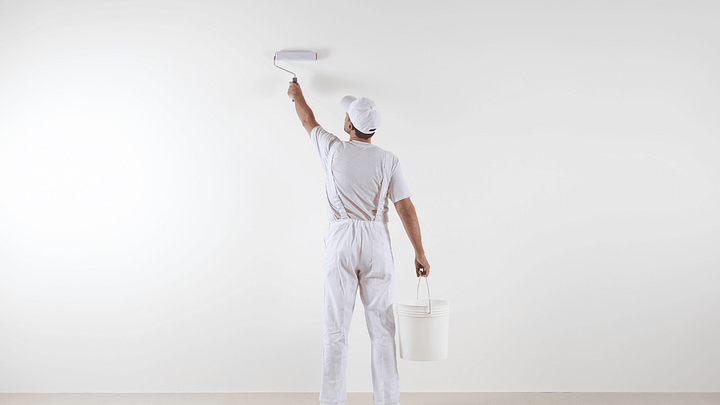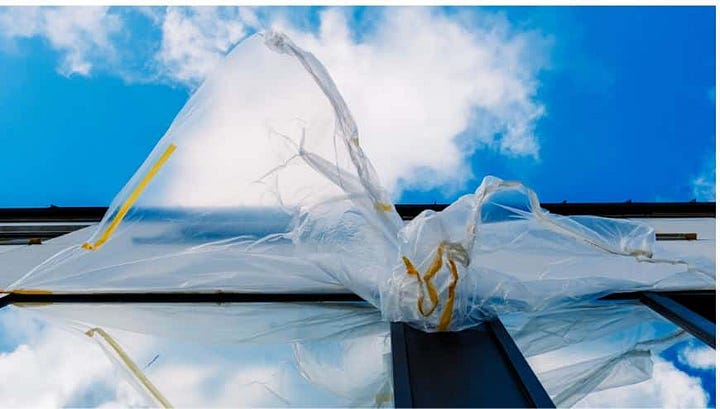In any commercial building, the exterior is the first thing people take note of or see. The exterior of the building consists of the painting, the window and door, and more. However, if there is one thing that attracts or leaves a lasting impression, it is the painting. When properly done, people stop and admire it; however, it is the opposite when it is poorly done.
When it comes to painting the exterior of a commercial building, it involves more than just picking up a paintbrush and a bucket of paint to complete the project successfully. Adequate preparation of the exterior is essential. From evaluating surface conditions to grouting and sanding to creating a clean canvas to set the stage for a successful paint application, preparation ensures you get seamless and outstanding results.
This article highlights six things to know and what to do to prepare for exterior painting.
- Check the Weather Forecast
The weather will be a significant factor to consider when preparing for commercial exterior painting. Choose a period when the weather is mild and dry to ensure optimal conditions for the paint to cure properly. Spring is often the best time to repaint because it’s a fantastic opportunity to finish your project.
Importance notice: Avoid painting during extreme temperatures, high humidity, and rainy or foggy periods, as these can negatively impact the paint’s adhesion and drying process.
- Determine the Condition of the Wall Surface and Existing Paint
Next, to evade blistering or flaking over time, it’s imperative to check the condition of your existing paint. Do this by cutting into the surface with a sharp blade, pressing some masking tape firmly over the cut, and then swiftly peeling off the masking tape. If any existing paint is lifted by the edge of the cut or stuck to the tape, then the surface is not smooth enough and must be scrapped or sanded off.
Also, check the outer walls for any damage, and fix it before the painting commences.

- Prepare and Clean the Surface
Cleaning the surface is vital in preparing your commercial building for an exterior painting project. This step ensures the paint adheres properly and contributes to the new paint’s overall durability and longevity. To clean the surface effectively, it’s essential to use the right cleaning solution, and in some cases, this may involve adding chemicals.
Adding chemicals can be highly effective for more stubborn stains, heavy dirt, mildew, or mold. These chemicals are specifically formulated to break down and remove contaminants that water and detergent alone might not be able to handle.
Pressure washing the surface is also an integral part of the preparation process for a commercial building exterior painting project. This step involves using a specialized pressure washer to apply a high-pressure stream of water to the building’s exterior
- Caulking and Sanding
It’s essential to address any gaps or imperfections in the exterior surfaces before painting. This is where caulking and sanding are needed.
These are essential steps in the preparation process for a commercial building exterior painting project. These steps help ensure a smooth, uniform, and long-lasting paint finish by addressing gaps, cracks, and imperfections on the building’s surface.
Caulking involves the application of a flexible sealant, typically in the form of a caulk or sealant compound, to seal gaps, joints, and cracks in the building’s exterior.
Sanding is a surface preparation technique that involves smoothing the building’s exterior by removing imperfections, rough spots, or old paint residue.
Together, these steps help lay the foundation for a successful and long-lasting paint job, ensuring that your building looks its best and remains well-protected.
Note: A medium-coarse sandpaper with a grain level between P80 and P180 will remove paint without damaging the underlying surface.

- Protect Surrounding Areas
Protecting the doors, windows, trim, landscaping, and lighting comes next. Use painter’s tape, masking tape, drop cloths, or plastic sheeting to cover them.
- Choose the Most Suitable Paint
When choosing paint for a commercial building exterior, both Sherwin-Williams SuperPaint and Duration Paint offer distinct advantages. SuperPaint is known for its durability, fade resistance, versatility, stain resistance, and affordability. It’s a balanced choice for various surfaces and budgets. Duration Paint, on the other hand, excels in longevity, advanced weather resistance, adhesion, color selection, and low maintenance. It’s ideal for long-lasting, weather-resistant solutions. The choice between these paints depends on your specific project needs, budget, and the desired level of performance and longevity. Both paints from Sherwin-Williams guarantee quality and protection for your commercial building exterior.
It’s crucial to pick the correct product and tools. For the paint, you ought to pick high-quality paint. Avoid going for cheap paints because you need one tough enough to resist any weather conditions.
Conclusion
If you need some assistance with painting the exterior of your commercial building, take advantage of our color stylist services, among others, here at SPPI.
Contact us for a free estimate with any of our skilled professionals today.
https://soperfectpaint.com/how-to-prepare-for-your-commercial-building-exterior-painting/